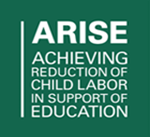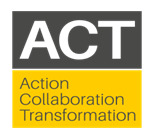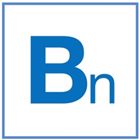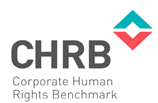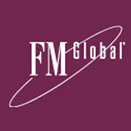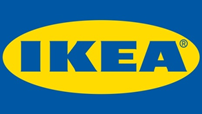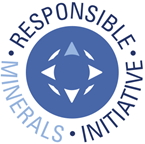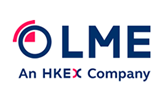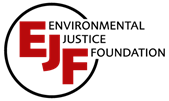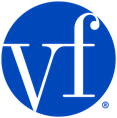Private Sector | ||
|---|---|---|
.
Name of Resource | Achieving Reduction of Child Labor in Support of Education (ARISE) |
Type | Platform for co-operation |
Country / jurisdiction | Global |
Organization | International Labour Organization, Japan Tobacco International, Winrock International |
Initiative launch date | 2011 |
Description | Achieving Reduction of Child Labor in Support of Education (ARISE) is a programme to help prevent and eliminate child labour in tobacco-growing communities where Japan Tobacco International does business. The partnership began in 2011, with much of that year devoted to building the partner relationships and developing the programme framework. The on-the-ground efforts began in Malawi and Brazil in early 2012 and in late 2012, in Zambia. |
Availability |
Name of Resource | ACT - Action, Collaboration, Transformation |
Type | Platform for co-operation, Monitoring and enforcement mechanism |
Country / jurisdiction | Global |
Organization | ACT |
Date of initial launch | 2017 |
Description | ACT (Action, Collaboration, Transformation) is an agreement between global brands and retailers and trade unions to transform the garment and textile industry and achieve living wages for workers through industry-wide collective bargaining linked to purchasing practices. ACT is a global commitment on living wages in the sector that provides a framework through which all relevant actors, including brands and retailers, trade unions, manufacturers, and governments, can exercise their responsibility and role in achieving living wages. ACT members have agreed the following the principles: a joint approach is needed where all participants in global supply chains assume their respective responsibilities in achieving freedom of association, collective bargaining and living wages; agreement on a living wage should be reached through collective bargaining between employers and workers and their representatives, at national industry levels; workers must be free and able to exercise their right to organize and bargain collectively in accordance with International Labour Organization Conventions. |
Availability | ENG: https://actonlivingwages.com/wp-content/uploads/2019/05/ACT_COMMS_Factsheet_05-2019-WEB-1.pdf |
Name of Resource | BlueView - Supply Chain Transparency to Protect People and Places |
Type | Platform for co-operation, Knowledge/information hub |
Country / jurisdiction | Global |
Organization | Bluenumber |
Initiative launch date | 1 November 2017 |
Description | Bluenumbers were introduced at the UN in 2015 as a tool to track and measure the Sustainable Development Goals (SDGs) from a beneficiary-centric perspective. Bluenumbers can identify, enable and empower individuals, such as small farmers or conscious consumers. We help businesses trace their supply chains, verify and analyse their data, and generate evidence to support their sustainability claims. BlueView is a public good using anonymized Bluenumbers to show the location of people relative to global risks and impacts such as fires and burning, deforestation and other hazards. These data sets of people and organizations at locations enable instant understanding of who is impacting, or being impacted, in climate zones or human development. Companies and governments work with Bluenumber to reach farmers and workers in complex and dynamic supply chains. Bluenumbers are currently focused on smallholder palm oil farmers in Malaysia and garment factory workers in Bangladesh. To avoid data slavery, farmers and workers own their own data. Companies share non-competitive data from private Bluenumber supply chain maps, which provide full traceability to the last farmer or worker. The companies visualize who produces their products, and gains valuable insight and analysis to report on livelihoods, education, health and other indicators for human rights and development. |
Availability |
Name of Resource | Business Actions Against Forced Labour |
Type | Corporate Policy, Guidance on policy / legislation implementation |
Country / jurisdiction | Global |
Organization | The Consumer Goods Forum |
Date of publishing | 2017 |
Description | The publication, Business Actions Against Forced Labour, is a practical demonstration of the collaborative spirit between businesses, government, civil society and workers’ organizations, showcasing concrete actions that are being taken to address and prevent forced labour in global supply chains. These actions include corporate efforts to implement Consumer Goods Forum’s Priority Industry Principles, a set of principles that, when applied on a global scale, can help address the conditions that contribute to forced labour: every worker should have freedom of movement, no worker should pay for a job and nor worker should be indebted or coerced to work. |
Availability |
Name of Resource | Construction and the Modern Slavery Act. Tackling Exploitation in the United Kingdom |
Type | Report/analysis |
Country / jurisdiction | United Kingdom |
Organization | The Chartered Institute of Building |
Date of publishing | May 2018 |
Description | This report examines the United Kingdom’s construction industry’s response to the Modern Slavery Act and the systemic problems that effects the rights of domestic and foreign workers in the sector. |
Availability | ENG: http://www.ciob.org/campaigns/tackling-modern-slavery-construction |
Name of Resource | Corporate Human Rights Benchmark. Pilot Methodology 2016 |
Type | Score / Measurement / Metric |
Country / jurisdiction | Global |
Organization | Corporate Human Rights Benchmark |
Date of publishing | March 2016 |
Description | The benchmark was developed to provide a comparative year-on-year snapshot of the human rights performance of the largest 500 companies of the world, looking at the policies, processes and practices they have in place to systematize their human rights approach and how they respond in case of finding labour exploitation and other human rights abuses in their supply chain. |
Availability | ENG: https://business-humanrights.org/sites/default/files/CHRB_report_06_singles.pdf |
Name of Resource | Daimler AG - Human Rights Respect System |
Type | Corporate Policy |
Country / jurisdiction | Global |
Organization | Daimler |
Date of publishing | May 2018 |
Description | This corporate policy sets to ensure that Daimler’s products contain only raw materials that have been mined and produced without human rights violations. Due to the complexity of the supply chains and the multitude of raw materials in their products, a risk-based and strategic approach is required. The Human Rights Respect System aims to recognize and avoid risks and possible negative effects of corporate action on upholding human rights at an early stage. The Human Rights Respect System will be used both in Daimler’s supply chain as well as in their majority held entities. The System draws on Daimler’s Compliance Management System, which consists of four steps: risk assessment, programme implementation, monitoring and reporting. |
Availability | ENG: https://www.daimler.com/sustainability/responsible-conduct/human-rights/ |
Name of Resource | FM Global Resilience Index |
Type | Score / Measurement / Metric |
Country / jurisdiction | Global |
Organization | FM Global |
Date of initial launch | 2018 |
Description | The FM Global Resilience Index is a data-driven tool that ranks 130 countries and territories according to their enterprise resilience to disruptive events. It aggregates 12 drivers of resilience into three factors (categories)—economic, risk quality and supply chain. The supply chain factor includes corruption control, quality of infrastructure, and quality of local suppliers and visibility of supply chain across a country. With the index, executives will be able to prioritize their enterprise risk management and investment/expansion decisions and gain powerful insights about risk and opportunities to guide their strategy in five key areas: determine which locales are most resilient to disruptive events; site new facilities or expand existing ones; select suppliers; evaluate established supply chains; identify customers who may be vulnerable. |
Availability |
Name of Resource | HP Supply Chain Foreign Migrant Worker Standard |
Type | Policy/standard |
Country / jurisdiction | Global |
Organization | Hewlett Packard |
Date of initial launch | 2014 |
Description | The objective of this standard is to set forth the minimum requirements for the appropriate and ethical recruitment and management of foreign migrant workers by or on behalf of suppliers doing business with HP. The standard applies to all suppliers and supplier facilities globally that are involved in manufacturing HP’s products, packaging, parts, components, subassemblies, and materials, or involved in processes related to that manufacturing, and all suppliers that provide services to or on behalf of HP. |
Availability |
Name of Resource | Human Rights Outlook 2016 |
Type | Report/analysis |
Country / jurisdiction | Global |
Organization | Verisk Maplecroft |
Date of publishing | 15 February 2016 |
Description | The report analyses the 10 most significant human rights issues impacting business among the recruitment of migrants and refugees into forced labour; a lack of information on labour practices deep within the supply chain; and inadequate oversight of suppliers, which could be the biggest threats to the brand reputation of global companies over the next year. The report identifies the primary emerging risk areas for companies with global supply chains and provides strategic insight into the human rights landscape to raise awareness of responsible procurement practices. |
Availability | ENG: https://maplecroft.com/portfolio/new-analysis/2016/02/15/human-rights-outlook-2016/ |
Name of Resource | Human Trafficking Risk Index |
Type | Score / Measurement / Metric |
Country / jurisdiction | Global |
Organization | Dun and Bradstreet |
Date of publishing | 2016 |
Description | The Human Trafficking Risk index provides insights into where potential human trafficking may exist deep within companies’ supply chain – Dun & Bradstreet created this proprietary scoring index by “marrying” its corporate database –with more than 280 million company records – to data from the International Labor Affairs Bureau and the United Nations Department of State. Forced labour is more likely to occur in certain geographic regions and product sets, so the data creates an analytic index that evaluates the potential for one of company’s suppliers to be involved in human trafficking based on the location of the supplier and the product or commodity type they provide. HTR creates an automated, repeatable, closed-loop process to proactively monitor the supply chain for potential human trafficking violations. |
Availability | ENG: http://www.dnb-nederland.nl/human-trafficking-risk-index |
Name of Resource | IWAY – IKEA code of conduct |
Type | Corporate Policy |
Country / jurisdiction | Global |
Organization | IKEA |
Date | 2000 |
Description | IWAY is the IKEA code of conduct, which specifies the requirements that the company places on suppliers of products and services and details what they can expect in return from IKEA. In addition to the main document, there are several industry-specific supplements and a special code of conduct for child labour. IKEA suppliers are responsible for communicating the content of the IKEA code of conduct to their employees and sub-suppliers. |
Availability | ENG: https://www.ikea.com/ms/ar_QA/about_ikea/pdf/SCGlobal_IWAYSTDVers4.pdf |
Name of Resource | Joint Audit Cooperation Supply Chain Sustainability Guidelines |
Type | Guidance on policy / legislation implementation |
Country / jurisdiction | Global |
Organization | Joint Audit Cooperation |
Date of publishing | June 2015 |
Description | The Joint Audit Cooperation is a collective of telecommunication companies aiming to promote safe and fair working conditions as well as responsible, social and environmental management by verifying, assessing and promoting sustainability standards and transfer of best practice across its supply chain. These JAC Sustainability Guidelines have been established to complement the respective supplier codes of JAC member companies. Suppliers are encouraged to implement the requirements contained in the guidelines and go further in implementing key performance indicators in this document to achieve compliance. |
Availability | ENG: http://jac-initiative.com/download/jac-supply-chain-guidelines/ |
Name of Resource | Marks and Spencer - Forced Labour Toolkit for International Suppliers and Partners |
Type | Toolkit |
Country / jurisdiction | Global |
Organization | Marks and Spencer |
Date of publishing | 2018 |
Description | This Toolkit supports international suppliers and franchise partners of Marks and Spencer to show leadership in tackling forced labour in their business practices, operations and supply chains. Increasing legal requirements and expectations from customers, consumers, employees, governments and stakeholders mean that responsible businesses need to put human rights and tackling forced labour at the heart of their business approaches. |
Availability |
Name of Resource | Marks and Spencer Interactive map |
Type | Traceability/practical tool, Interactive source |
Country / jurisdiction | Global |
Organization | Marks and Spencer |
Date of initial launch | 2019 |
Description | The factories featured on this interactive map are contracted by M&S direct suppliers to produce finished goods which are ready for retail and bear the company’s brand logos and marks. Included are all first-tier manufacturing sites which produce M&S branded clothing, clothing accessories, footwear, beauty, food, alcoholic and non-alcoholic drinks, homeware, giftware and household products. Excluded are some small continental meat and artisanal cheese suppliers. Other lower tier factories used by M&S suppliers, for example those which manufacture fabric, yarn and primary food processors are also not included on the map. As a condition of trade, M&S requires all direct suppliers and contracted factories to join the Supplier Ethical Data Exchange (Sedex), a web-based database where suppliers disclose information (labour standards, health and safety, environmental) including self-assessments and site audit reports. |
Availability |
Name of Resource | Modern Slavery Index |
Type | Report/analysis |
Country / jurisdiction | Global |
Organization | Verisk Maplecroft |
Date of publishing | 2018 |
Description | The Modern Slavery Index quantifies the risk of association with forced labour, bonded labour, human trafficking and child slave labour for businesses in 198 countries. The Modern Slavery Index assesses the risk to business of exposure to practices of slavery, servitude, trafficking in persons and forced labour. The index is specifically designed to help companies identify where the risk of modern slavery is greatest across their business and supply chain in order to better protect workers and comply with new and emerging legislation. The Modern Slavery Index forms part of Verisk Maplecroft’s Human Rights Data Set, which features 31 risk indices covering civil and political rights, labour rights, human security, remedy, and development issues. |
Availability |
Name of Resource | Nike Manufacturing map |
Type | Traceability/practical tool, Interactive source |
Country / jurisdiction | Global |
Organization | Nike |
Date of initial launch | June 2019 |
Description | This interactive map showcases information on the independent factories and material suppliers used to manufacture NIKE products, including the name and location of each factory and the types of products they produce. For finished good facilities, the tool also includes information about the workers at each factory. More information on Nike’s commitment to making product responsibly is available at https://purpose.nike.com/ |
Availability |
Name of Resource | Open Apparel Registry |
Type | Traceability/practical tool; Knowledge/information hub |
Country / jurisdiction | Global |
Organization | Open Apparel Registry |
Date of initial launch | 2019 |
Description | The Open Apparel Registry (OAR) is an open source map and database of global apparel facilities, their affiliations and OAR IDs assigned to each facility. The OAR enables users to: update and standardize facility names and addresses against the database; understand affiliations of current and prospect facilities to identify opportunities for collaboration; find potential new suppliers, listed with their credentials and affiliations; leverage the OAR ID as a unique and shared ID across software systems and databases |
Availability | ENG: https://info.openapparel.org/ |
Name of Resource | Open Data Register committed to ending Modern Slavery and supply chain labour abuses |
Type | Registry / data base |
Country / jurisdiction | United Kingdom |
Organization | TISC REPORT |
Initiative launch date | 21 March 2016 |
Description | Tiscreport.org is an Open Data Register committed to ending modern slavery and supply chain labour abuses, joining with Transparency In Supply Chains (TISC) global reporting. As an open data initiative, it meets the compliance requirements of Section 54 of the Modern Slavery Act 2015. Companies can use the platform to: share their annual TISC statement;share their annual Welsh Government Ethical Employment in Supply Chains Code of Practice Commitments; check their supply chain for non-financial risks, from non-compliance with the Modern Slavery Act to corporate convictions; increase their transparency and visibility to companies over £36M turnover; upload their statement for free; add more companies to their portfolio; freely access data and reports. |
Availability |
Name of Resource | Open SourceMap |
Type | Traceability/practical tool; Knowledge/information hub |
Country / jurisdiction | Global |
Organization | Sourcemap |
Date of initial launch | 2011 |
Description | Sourcemap is a provider of supply-chain visualization and transparency solutions. Sourcemap was launched in 2008 at MIT as a supply chain management platform rooted in transparency. Since 2011 the New York City-based start-up has been developing software and services needed to take companies on the journey to radical transparency. Today Sourcemap software runs the most powerful platforms for transparency and traceability on the market, including Open Sourcemap, the world’s largest public repository of supply chains, the Open Factory Registry, a unique tool that matches the names and addresses of hundreds of thousands of factories around the world, and Sourcemap Enterprise: a suite of software for companies to manage their transparency trajectory in-house. Sourcemap Enterprise was the first platform designed to manage multi-tier supply chains, including advanced database technology that traces individual products from raw materials to end customers, and award-winning visualizations to make sense of it all. |
Availability | ENG: https://www.sourcemap.com/ |
Name of Resource | Primark Code of Conduct |
Type | Code of conduct |
Country / jurisdiction | Global |
Organization | Primark |
Date of publishing | February 2017 |
Description | Primark’s Code of Conduct commits to sourcing its products and that its procurement is carried out in strict accordance with the Primark Code of Conduct which incorporates the United Nations Charter, Chapter IX, Article 55. All suppliers of products to Primark do so in accordance with this Code of Conduct.When suppliers breach this Code of Conduct, Primark sets to work with them to improve business standards and employee welfare. Primark reserves the right to terminate our arrangement with that supplier immediately for appropriate transgressions or where there is no willingness to make the necessary changes. The Code is a mandatory requirement that is subject to audit. In order to achieve this Primark, expects its suppliers to adopt an open attitude to the monitoring activities that will be implemented and to give all cooperation to its own and any third party auditors employed. |
Availability | ENG: https://primark.a.bigcontent.io/v1/static/English-primark-code-of-conduct |
Name of Resource | Primark Global Supply Chain Transparency Online Map |
Type | Interactive source |
Country / jurisdiction | Global |
Organization | Primark |
Date of publishing | February 2017 |
Description | The factories featured on Primark’s Global Sourcing Map are Primark’s suppliers’ production sites that represents over 95% of Primark products for sale in Primark stores. A factory is detailed on the Map only after it has produced products for Primark for a year and has become an established supplier. During the first year, a factory has to demonstrate that it can consistently work to Primark’s ethical standards, as well as meet the company’s commercial requirements in areas such as quality and timely delivery. Each factory entry includes the site address, the number of workers and gender disparity. The information is reviewed and updated twice a year. |
Availability |
Name of Resource | Production Chain Monitoring Program |
Type | Corporate initiative/risk assessment |
Country / jurisdiction | Brazil |
Enacting authority | Brazilian Textile Retail Association/Social Accountability Accreditation Services |
Date of initiative | 13 August 2018 |
Description | The Brazilian Textile Retail Association (ABVTEX) represents Brazil’s largest fashion retail chains that focuses on social responsibility, compliance and the promotion of decent work. This programme promotes a relationship between ABVTEX and the Social Accountability Accreditation Services (SAAS), the global accreditation body whose mission is to support the implementation of social and labour standards. The objective of the relationship is to collaborate in order to maintain the highest quality standard. The programme consists of the SAAS monitoring ABVTEX Program, which has been fighting the use of child and irregular foreign labour. |
Availability | POR: https://www.abvtex.org.br/noticias/abvtex-firma-parceria-com-saas-organismo-de-acreditacao-global-para-evolucao-do-programa-de-monitoramento-da-cadeia-produtiva/ |
Name of Resource | Responsible Business Alliance Code of Conduct |
Type | Policy |
Country / jurisdiction | Global |
Organization | Responsible Business Alliance |
Date of initial launch | 1 April 2015 |
Description | The Responsible Business Alliance Code of Conduct is a set of standards on social, environmental and ethical issues in the electronics industry supply chain. The standards set out in the Code of Conduct reference international norms and standards including the Universal Declaration of Human Rights, ILO International Labour Standards, OECD Guidelines for Multinational Enterprises, ISO and SA standards, and many more. |
Availability | ENG: http://www.responsiblebusiness.org/standards/code-of-conduct/ |
Name of Resource | Responsible Labour Initiative |
Type | Platform for co-operation |
Country / jurisdiction | Global |
Organization | Responsible Business Alliance |
Date of initial launch | 2004 |
Description | The Responsible Labour Initiative (RLI) is a multi-industry, multi-stakeholder initiative focused on ensuring that the rights of workers vulnerable to forced labour in global supply chains are consistently respected and promoted. RLI solutions are based on leading Responsible Business Alliance standards, programme and partnerships that will be extended to other industries through membership in the RLI and will work in conjunction with complementary solutions to better address these issues. |
Availability |
Name of Resource | Responsible Minerals Assurance Process |
Type | Practical implementation tool |
Country / jurisdiction | Global |
Organization | Responsible Minerals Initiative |
Date of initial launch | June 2014 |
Description | The Responsible Minerals Assurance Process (RMAP), formerly the Conflict-Free Smelter Program, is helping companies make informed choices about responsibly sourced minerals in their supply chains. Focusing on a “pinch point” in the global metals supply chain, the RMAP uses an independent third-party audit of smelter/refiner management systems and sourcing practices to validate conformance with RMAP protocols and current global standards. The audit employs a risk-based approach to validate smelters' company level management processes for responsible mineral procurement. Companies can then use this information to inform their sourcing choices. A list of smelters and refiners that meet the requirements of the audit standards are published on this website. The audit standards are developed according to global standards, including the OECD Due Diligence Guidance for Responsible Supply Chains of Minerals from Conflict-Affected and High-Risk Areas and the U.S. Dodd-Frank Wall Street Reform and Consumer Protection Act. |
Availability | ENG: http://www.responsiblemineralsinitiative.org/responsible-minerals-assurance-process/ |
Name of Resource | Responsible Sourcing: London Metal Exchange Position Paper |
Type | Position paper |
Country / jurisdiction | Global |
Organization | London Metal Exchange |
Date of publishing | October 2018 |
Description | The London Metal Exchange is proposing that all of its brands undertake an assessment against the red flag indicators set out by the Organisation for Economic Co-operation and Development. Any brands where this assessment indicates a higher risk in respect of metal sourcing practices would be expected to undertake an audit against an industry standard which has been shown to incorporate the OECD Due Diligence Guidance for Responsible Supply Chains of Minerals from Conflict-Affected and High-Risk Areas, or an equivalent. Furthermore, and given the greater industry focus on two specific metals (cobalt and tin), the LME will expect all brands of these metals to undertake such an audit. It is not the intention of the LME to publish its own standard; rather, it will allow those producers requiring an audit to elect an existing standard which has been independently assessed as being consistent with the OECD Guidance. |
Availability | ENG: https://www.lme.com/en-GB/About/Responsibility/Responsible-sourcing |
Name of Resource | Sedex Members Ethical Trade Audit (SMETA) Best Practice Guidance |
Type | Guidance on policy / legislation implementation |
Country / jurisdiction | United Kingdom |
Organization | SEDEX |
Date of publishing | April 2017 |
Description | The SMETA best practice guidance is a compilation of social audit best practices to help auditors achieve the consistency needed for social audits to be widely accepted by retailers and brands. It also helps organizations commissioning audits to specify the auditing methodology required. It provides guidance on conducting ethical trade (labour and human rights) audits including risk assessment, conducting audits, types of audits, corrective action plan format, worker interviews and engagement etc. |
Availability | ENG: https://cdn.sedexglobal.com/wp-content/uploads/2017/04/Smeta-6.0-BPG.pdf |
Name of Resource | Supply Chain Sustainability Procurement Guidance – How to embed best practice in your procurement when combating modern slavery |
Type | Report / analysis; Guidance on policy / legislation implementation |
Country / jurisdiction | Global |
Organization | Supply Chain Sustainability School |
Date of publishing | July 2016 |
Description | The aim of the Guide is to help organizations identify their risks, embed the modern slavery requirements within the prequalification and contracting process and finally support the auditing and supply chain management processes. It has been written for procurement professionals, sustainability advisors and individuals who make procurement decisions as well as those who support them. It provides guidance on how to address the issues relating to modern slavery through everyday procurement activities and has been specifically written for sectors covered by the Supply Chain Sustainability School. The Guide compliments or builds on existing guidance that has been published to date. |
Availability |
Name of Resource | The Environmental Justice Foundation’s Charter for Transparency |
Type | Charter, Report |
Country / jurisdiction | Global |
Organization | Environmental Justice Foundation |
Date of publishing | November 2018 |
Description | Transparency in the fishing industry is the best weapon against the twin tragedies of illegal fishing and human rights abuse in the sector. EJF has collated ten simple principles for states to follow. |
Availability | ENG: https://ejfoundation.org/reports/the-ten-principles-for-global-transparency |
Name of Resource | The Responsible and Ethical Private Sector Coalition against Trafficking (RESPECT) |
Type | Platform for co-operation, Knowledge/information hub |
Country / jurisdiction | Global |
Organization | Babson, the Global Initiative Against Organized Crime, International Organization for Migration |
Date of initial launch | 12 January 2018 |
Description | The initiative assembles key leaders, practitioners, and policy makers to identify solutions for public and private sector challenges surrounding modern slavery. RESPECT endeavours to add value by facilitating debate between diverse stakeholders, providing relevant contributions to the research basis, building linkages to other crimes, and developing effective public policy towards a more effective global response. |
Availability |
Name of Resource | The Sancroft-Tussell Report: Eliminating Modern Slavery in Public Procurement |
Type | Report |
Country / jurisdiction | United Kingdom, Global |
Organization | Sancroft |
Date of publishing | 2017 |
Description | This report explores how central government’s top contractors are facing the challenge of identifying and addressing modern slavery. It analyses the modern slavery reporting performance of the top 100 suppliers to central government, ranked by the value of contracts won by them in 2017. It goes on to set out the business case for companies to do more to eliminate modern slavery in their operations and supply chains, providing guidance to business on where, how, and why they should be taking effective action to manage modern slavery risk. It also touches upon the role of central government in incentivizing better performance by businesses. Analysis of performance was guided by the legal compliance of each modern slavery statement, and the degree to which the statement responded to the six suggested reporting areas as outlined in the Modern Slavery Act (MSA) itself. An overarching trend was the wide variance in both legal compliance and quality of published statements. |
Availability |
Name of Resource | VF Traceability initiative |
Type | Traceability/practical tool |
Country / jurisdiction | Global |
Organization | VF Corporation |
Date of initial launch | 2018 |
Description | VF’s supply chain spans approximately 50 countries and thousands of contract suppliers. The company sets out to ensure that its products are made with responsibly sourced materials by tracing where they originated. VF’s traceability initiatives intend to provide visibility into some of their most pressing supply chain issues and risks. VF partners with its suppliers to bring best practices to their businesses and help prevent any occurrence of human rights violations. |
Availability | ENG: https://sustainability.vfc.com/our-impacts-efforts/responsible-sourcing/traceability |
